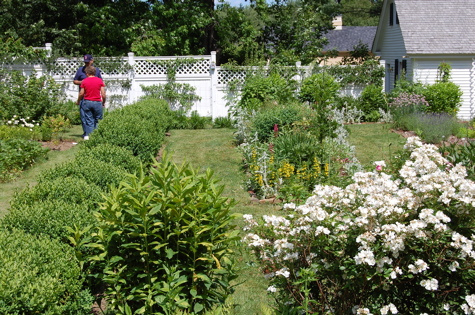Planting is an excellent decision for the betterment of your home environment, health, as well as your wallet. It is a great way to save money and eat fresh food. Unfortunately, after you toil your plants, you might face certain frustrations, such as seeing your carefully tended crop being eaten or mangled up by pests.
Thankfully, there are natural ways to keep these garden pests at bay. The healthiest and safest approach is to use organic and eco-friendly pest control solutions, such as companion gardening, attracting beneficial insects, and avoiding chemical pest control products.

Identifying Common Garden Pests
Roseslug:
Once you observe that your new foliage has a skeletonized pattern, it might indicate that the foliage has been mangled up and eaten. This means that there is a huge chance that you have roseslug in your garden. It is best to get rid of the infected plant or use natural methods to get rid of the pests.
Aphids:
These are the most common pests in the garden. This insect is small in size and it has a green coloring with a soft body. They usually feed on the first abundant spring growth, sucking the sap from the stems.
Leaf Cutter Bee:
This garden pest is very small and it has a yellow-green coloring that can jump on the undersides of the plants to feast on them. They usually leave their white skin behind. Leaf cutter bees can damage the plant and it can result in defoliation. As a tip, you must prevent these bees from establishing a strong colony in your garden.
Spider Mite:
This type of pest can establish huge colonies under the leaves; thus, the infected leaf might look like it has salt-and-pepper particles. If you are able to detect the problem early on, you will be able to control the infestation. It is best to direct the natural pest control solution to the underside of the leaves. You can also fine mist the infested foliage with water to the undersides of the leaves. This will wash away most of the spider mites to ground level since they can’t fly and will eventually die on the ground.
Lygus Bugs And Stink Bugs:
These pests are usually known as plant bugs and they attack the developing bud by sucking the sap. While they suck the sap, they simultaneously inject a toxic substance that can breakdown the tissue of the plant. This results to the distortion and premature death of the bud.
Natural Remedies To Control Garden Pests
Beneficial Insects:
It is very important to attract beneficial insects into your garden. Beneficial insects include praying mantis, lady bugs, lacewings, and certain types of nematodes. These insects will take care of your common garden pests. To attract these beneficial insects, you need to plant certain flowers, such as dill, fennel, marigolds, sunflowers, geraniums, dandelions and cilantro. You can also purchase them from your local plant nursery.
Egg Shells:
Instead of throwing away your egg shells into your garbage, why not throw them in your garden? You can crush the shells before tossing them around your garden. Crushed or halved shells don’t matter. Egg shells can keep wildlife away from your garden and keep them from snacking on your plants. In addition, they can also serve as an excellent fertilizer for your foliage.
Copper And Salt:
This remedy will work great against slug problem. Slugs won’t get near anything that has copper on them since it gives them a shock. You can purchase copper in strips and place it around your plants. You can even place them on the edges of containers or garden beds. Salt, on the other hand, kills slugs. Keep in mind though to moderately use salt in your garden since too much of it can be unhealthy for your plants.
Panty Hose:
You can use a pair of panty hose by stretching it over your tomato plants to keep squirrels and other wildlife away from them. You can do this for almost any small fruit and vegetable to keep bugs at bay.
Bacillus Thuringiensis:
Bt is a bacteria that is naturally found in the stomachs of caterpillars. Ironically, it can also kill caterpillars, roseslugs, and tomato hornworm. This compound must be mixed with water then you can spray it on the undersides of the foliage. Keep in mind though that this natural solution might affect beneficial insects as well; thus, only use this solution for serious garden pest infestation.
These are just a few tips for repelling and controlling pests in your garden. These tips are safe and natural; thus, it won’t have severe negative effects on your organic garden.
Citations:
- Lisa Allen.”Incredible Organic Garden”. January 15, 2006. Online Image. Flickr. Aug 21, 2013
Featured images:
License: Creative Commons
image source
The author, Kris Hopkins, is an organic gardener who offers more information about common garden pests and natural remedies to control them. She advises her readers to click here if they are in need of any pest control services.

